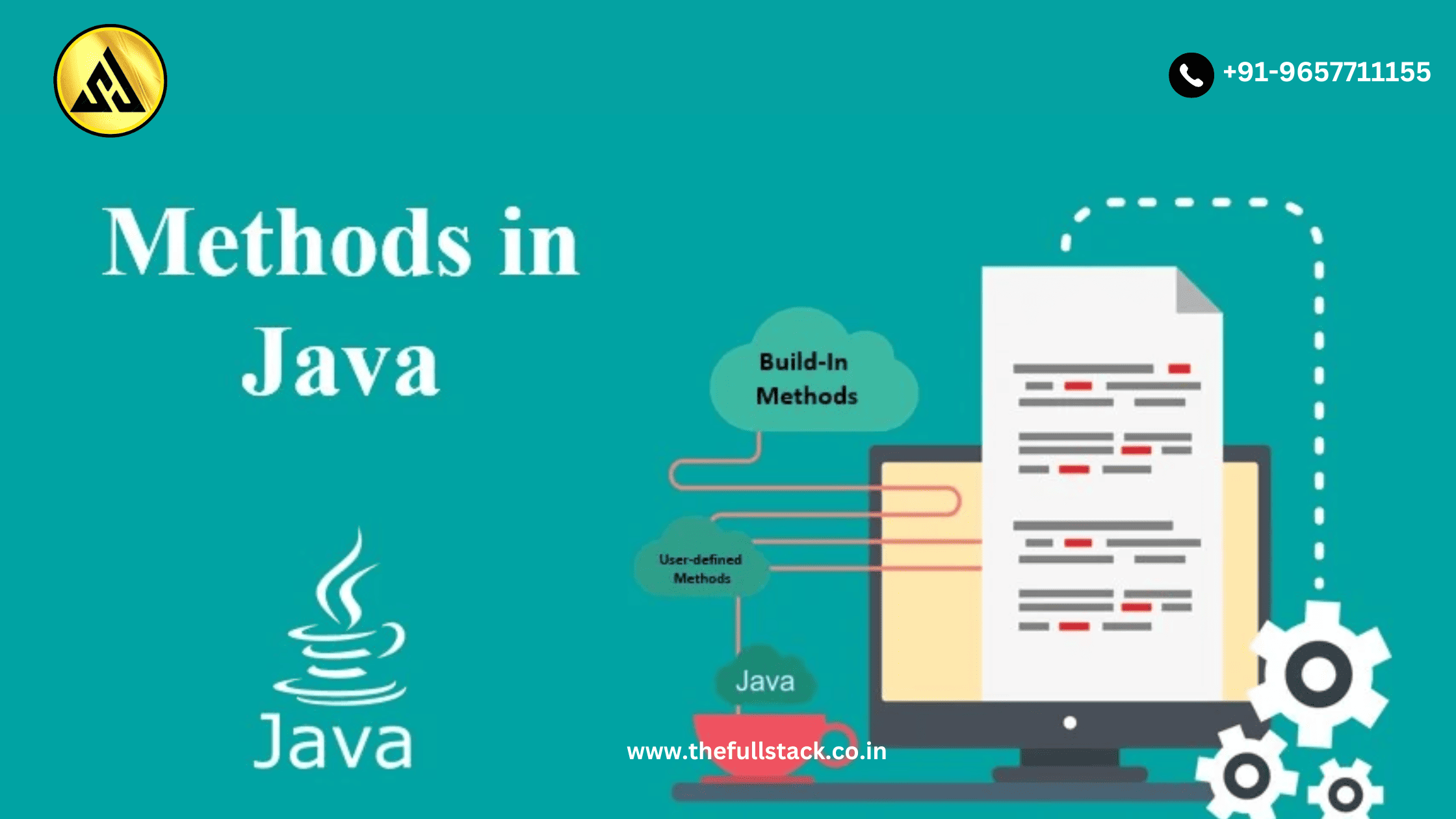
Java Methods: A Complete Guide with Advantages and Best Practices
Introduction
Java is an object-oriented, flexible programming language that lets programmers create reusable, effective programs. Methods are one of the core components of Java programming. Programs become more modular and maintainable when methods are used to design reusable chunks of code that carry out particular tasks.
In this blog, we will cover:
- What are Java methods?
- Types of methods in Java
- How to define and use methods
- Method overloading and overriding
- Advantages of using methods
- Best practices for writing Java methods
What are Java Methods?
A method in Java is a block of code that performs a specific task when called. It helps in breaking down complex problems into smaller, manageable parts, improving code readability and reusability.
Basic Syntax of a Method
returnType methodName(parameters) {
// method body
return value;
}- returnType: Specifies the type of value the method returns.
- methodName: The name of the method.
- parameters: Inputs that the method accepts (optional).
- method body: The actual logic inside the method.
Example of a Simple Method
public class Example {
public static int addNumbers(int a, int b) {
return a + b;
}
public static void main(String[] args) {
int sum = addNumbers(5, 10);
System.out.println("Sum: " + sum);
}
}Types of Java Methods
1. Predefined Methods (Built-in Methods)
Java provides several built-in methods in classes like Math, String, and Arrays.
Example: Using Built-in Methods
public class BuiltInMethods {
public static void main(String[] args) {
System.out.println(Math.max(10, 20)); // Returns the maximum value
System.out.println("Hello".length()); // Returns the length of the string
}
}2. User-Defined Methods
Developers can create custom methods based on specific requirements.
Example: A Custom Greeting Method
public class UserDefinedMethods {
public static void greet(String name) {
System.out.println("Hello, " + name + "!");
}
public static void main(String[] args) {
greet("Alice");
}
}3. Static Methods
Static methods belong to the class and do not require an instance to be called.
Example:
class StaticExample {
static void showMessage() {
System.out.println("Static method called");
}
public static void main(String[] args) {
showMessage(); // No need to create an object
}
}4. Instance Methods
Instance methods require an object of the class to be called.
Example:
class InstanceExample {
void display() {
System.out.println("Instance method called");
}
public static void main(String[] args) {
InstanceExample obj = new InstanceExample();
obj.display();
}
}Method Overloading and Overriding
Method Overloading
When multiple methods have the same name but different parameters, it is called method overloading.
Example:
class OverloadingExample {
void show(int a) {
System.out.println("Integer: " + a);
}
void show(String s) {
System.out.println("String: " + s);
}
public static void main(String[] args) {
OverloadingExample obj = new OverloadingExample();
obj.show(5);
obj.show("Hello");
}
}Method Overriding
When a subclass provides a specific implementation of a method already defined in its parent class, it is called method overriding.
Example:
class Parent {
void display() {
System.out.println("Parent method");
}
}
class Child extends Parent {
@Override
void display() {
System.out.println("Child method");
}
public static void main(String[] args) {
Child obj = new Child();
obj.display();
}
}Advantages of Using Methods in Java
- Code Reusability: You can write code once and use it again and again thanks to methods.
- Improved Readability: Code that is divided into smaller methods is easier to read and maintain.
- Modular programming: Code is arranged into logical units with the use of methods.
- Debugging is made easier since methods encapsulate particular activities.
- Effective Memory Usage: Techniques improve memory efficiency by reducing redundancy.
- Encapsulation: Methods offer a means of separating implementation specifics from other program sections.
Best Practices for Writing Java Methods
- Use Meaningful Names: The objective of a method should be made apparent by its name (calculateSalary(), for example, rather than calc()).
- Keep Methods Brief: A technique should just accomplish one thing and be brief.
- Avoid Too Many arguments: To keep the technique simple, keep the number of arguments to a minimum.
- Make use of comments and documentation to explain intricate reasoning in procedures.
- Use private, protected, or public access modifiers properly.
- Utilize Static Methods When Necessary: For utility-based processes, employ static methods.
Conclusion
Writing reusable, modular, and tidy code requires the use of Java methods. You can create Java apps that are more effective and maintained by being aware of their kinds, benefits, and best practices.
you may be interested in this blog here:-


Leave a Reply